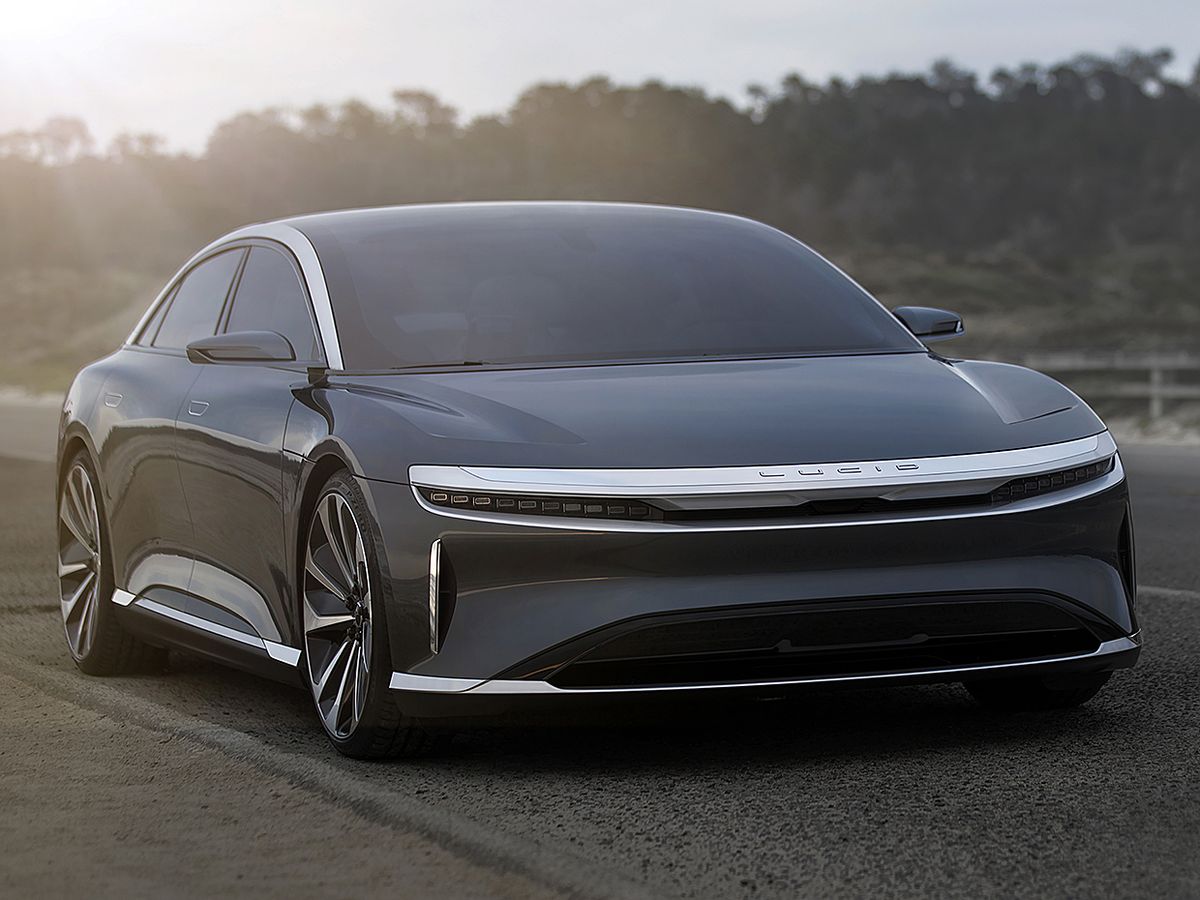2018’s Top 10 Tech Cars: Lucid Air
Accelerates as fast as a falling anvil

The United States is already littered with the ruins of failed or failing electric car companies: Aptera, Coda, Faraday Future, Fisker. But Lucid Motors might just have a shot at being a viable, smaller-scale competitor to Tesla.
First, there’s experience: Peter Rawlinson, the company’s chief technology officer, was chief engineer on Tesla’s Model S. Chief designer Derek Jenkins is a former Mazda man, and his keen eye for modern design shows: The car is one part spaceship, one part California spa.
The Silicon Valley company claims the Air will arrive with hurricane force in 2019, including first-in-class acceleration: as little as 2.5 seconds from 0 to 60 miles (97 kilometers) per hour, for the top-end model with all-wheel-drive, dual electric motors, and an insane 1,000 horsepower. Lucid has already released videos of the Air hustling to 378 km/h (235 mph), and the company claims it’s not done yet. A maximum 644-km (400-mile) driving range would be on par with many gasoline-powered cars, and it would whip any current EV, including Tesla’s.
Lucid claims that a unique lithium-ion battery chemistry, in cells developed with LG Chem and Samsung SDI, will exceed current benchmarks in energy density, power, and battery life, including “breakthrough tolerance” of DC fast charging.
MOTOR
298 kilowatts
RANGE (BASE MODEL)
386 km
PRICE
US $60,000
Rawlinson points out the battery’s shape in the Air as well: It’s shaped to create more foot room in the back seat, where optional 55-degree reclining chairs and fold-down “picnic tables” create the effect of a first-class airliner seat. The Air is prepped for the coming age of autonomy as well, with Mobileye cameras, radars, and lidar that Lucid says could deliver fully autonomous operation. Those lidar sensors would be a first for any production automobile.
Lucid hopes to build 10,000 Airs in 2019, eventually expanding to 100,000 per year, with about half of them destined for Chinese buyers. It’ll kick things off with a rear-drive model with 400 horsepower and 240 miles of range, priced from US $60,000 in the United States, or $52,500 after a $7,500 federal tax break. Yet even $100K—for the promised top-shelf model—wouldn’t be unreasonable for an eye-catching EV that has space like a limo and can go faster and farther than any electric sedan yet.